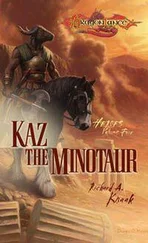No one knew. I doubt if Ella did herself. She was angry and jealous and lashing out at whoever happened to be there, as was her way. ‘I shall go and see for myself, that's all. He said to drop in, so I will.’ She seemed to lose her nerve and said, as if I were a suitable chaperone, ‘You can come with me, Kerstin.’
‘I can't spare Kerstin for that kind of thing,’ said Mrs Cosway.
I kept silent, while inwardly amused. That rather pleasant inner laughter died when Ella said, ‘I tell you what I'm going to do now, Mother, and don't try to stop me. I'm going to go up to Zorah's place, and go in and take back your geode. And while I'm there I'm going to get the lamp and the watercolours and – and the harp and everything else she's pinched.’
‘Her door will be locked,’ said Mrs Cosway coldly.
‘I have a key.’ Ella did not specify how she had come by it or elucidate at all.
‘There'll be trouble,’ warned Ida.
‘There's always trouble,’ said Ella. ‘It seems to come naturally to this family.’
Mrs Cosway cast up her eyes. ‘I suppose it comes to all families. We are no different.’
Ella's answer to this was a burst of laughter, harsh and unamused.
In the event I did go with Ella to The Studio. I am sorry to have to say it but I went, according to the diary, not because I sympathized with her feelings or liked Felix Dunsford or to see his paintings (though I was curious about them) but because I wanted to watch her behaviour with him and his with her. It was a Saturday. She wanted to get there by two but I reminded her that the pub stayed open until half-past. Three seemed a wiser time.
Though dressed in her usual weekend clothes at lunchtime, baggy trousers, sandals and a blouse, the way I judged Felix would probably like to see a woman, she changed afterwards. Mrs Cosway had agreed, at Ella's behest, not mine, to take John for his walk, and as soon as she was out of the house and Winifred occupied in the kitchen baking cakes for the Mothers' Union coffee morning after Matins next day, Ella rushed upstairs. Coming down a quarter of an hour later in a dress never before seen by me, she asked if her appearance would do.
‘Is this frock too smart? Now tell me honestly.’
I rather liked the striped pink and white cotton, the tightly belted waist and low neckline. Ella had a very good figure, and with discreet make-up, not plastered on like Winifred's, she looked pretty and young. Still, all she needed was a big hat to go to a royal garden party. In the high-heeled sandals she had put on, walking at even a reasonable speed was impossible. At the rate we were going we would be lucky to get there by three-fifteen.
‘What did you think of Selwyn Lombard?’
I said, more or less truthfully, that I had not thought much about him. In my ignorance I added nothing about his reminding me of someone I knew because it seemed impossible that she would help me. ‘That was the first time I've seen him.’
‘It won't be the last,’ she said with a little laugh. ‘He and my mother are very good friends.’
Though this, uttered in a loaded voice, could only mean one thing, I put it down to jealousy or resentment on Ella's part. These people were so old, to me then so impossibly ancient, that to think of any sexual tie between them was grotesque. Now, although I am twenty years younger than they were then, love and sexual relations between the elderly no longer seem ridiculous. I have heard of too many cases of passion among septuagenarians to feel that. At twenty-four I dismissed Ella's confidence as hysterical rubbish.
She said no more. Her feet were hurting. She lit a cigarette and drew hard on it. At Felix Dunsford's gate she turned to me and whispered, ‘I feel quite nervous. Silly, isn't it?’
Against my own wishes, I said, ‘Would you rather I wasn't with you? I can always go and sit on a seat on the green.’
‘Oh, God, no, Kerstin. I'd never go in at all without you.’
It looked at first as if going in would be impossible. There was no doorbell. We used the knocker to no effect. I offered to go round the back and look for him in the garden.
‘We'll both go,’ said Ella.
The back garden was a narrow, weed-grown strip planted with plum and apple trees that looked as if they had never borne fruit and never would. In a deckchair under one of them sat Felix, smoking a cigar. An old table which had apparently been used in a workshop, it was so scored with saw cuts, held a full ashtray and a half-empty bottle of red wine.
He looked up, and in true Rhett Butler–Maxim de Winter style, gave no greeting and no sign of surprise at seeing us. ‘Some guy in the Rose gave me this,’ he said, waving the cigar. ‘Very kind, I thought. I don't know what you're going to sit on.’
‘Oh, we can sit on the ground,’ said Ella gaily, ‘can't we, Kerstin?’
‘I suppose I'd better give one of you my chair.’
He spoke in a wondering tone as if this example of good manners on a man's part had been learnt aeons ago at school or his mother's knee but was now almost lost in the mists of time. Slowly he got up. Ella sat in his chair, blushing, though not so unbecomingly as Winifred.
‘We thought you would show us your paintings,’ she said.
‘Maybe,’ he said, ‘later. Do you want any wine?’
We shook our heads. What made this woman and her sister call him charming? Sexy, yes, maybe. (Did anyone use the word then? Certainly not in the sense of being exciting in a non-sexual sense.) He was sexually attractive if that was all you wanted and all those Gothic hero or anti-hero qualities were present. But wasn't he also trivial and shallow? I was a prig, I suppose, I was young and I thought Ella should have known better. I thought she should have got up, told him not to bother, she was sorry to have disturbed him and we would go. Of course she said none of that.
Men like Felix Dunsford are very difficult to talk to. I have met more of them since then. They trade on their mesmeric power, that which makes women enthralled by them, and which renders conversation beyond the merest innuendo unnecessary. Perhaps they talk to men. Women they despise and won't waste conversation on them, and this, horribly, is at the root of their attractiveness. It may be that Felix could have talked by the hour about Rouault and Kokoschka or the latest art movements or the Italian Renaissance but I was too ignorant of these things to broach them. (Not having been to art school and thinking of myself even now as an amateur, I still am.) I'm sure Ella was too. Nervous and awkward, she tried asking him about sign-painting. She knew enough – I suppose that as a teacher, she would – to inquire if he had taken a lettering course at art school. He grinned and nodded, said something about the Slade, where he had apparently been, and asked if either of us had any cigarettes as he had run out. By this time the cigar was a stub on top of a mountain of fag ends in the ashtray.
Ella fell over herself to offer him a cigarette from a new packet she had in her handbag. He took two, put both in his mouth, and performed the old seducer's trick of lighting them and handing one of them to her. Somehow he had assumed I was a non-smoker and it was true I got through fewer cigarettes than the Cosways, forced to ration myself on cost grounds.
‘Better go in and show you my daubs,’ he said.
Possibly stimulated by a rush of nicotine to the brain, Ella said in bright tones, ‘I warn you, I shall be strictly honest. If I don't think they're any good I shall say so.’
‘Do you know anything about painting?’ He sounded, at last, deadly serious. ‘Because if not I'd rather you didn't comment. If you mean you'll tell me if you like them, that's another thing.’
Flustered by this as anyone would be, Ella flushed again. I wondered if these sisters' tendency to blush, like madness, could be genetic. ‘I don't mean to offend,’ she said in a small voice.
Читать дальше












